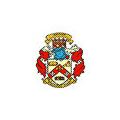Studies & Degrees in Aeronautical Management Technology
Choose where you would like to study Aeronautical Management Technology:
ChileSpainThe United StatesAeronautical Management Technology Study Programs
Level: Undergraduate Bachelors
Location: Madrid
Level: Undergraduate Bachelors
Location: Villanueva de la Cañada
Aeronautical management technology – also known as air transportation management – is directly related to the technological aspects of air transportation. It is focused on the overall supervision and coordination of air traffic, and teaches individuals to monitor, supervise, develop and implement aeronautical systems and policies in management positions.
It is rare to study aeronautical management technology anywhere aside from an accredited higher education institution. The most popular place to study aeronautical management technology is at technical schools that offer aviation programs, though some universities and colleges also provide these courses. Sometimes, government agencies will train individuals in this study through military programs. Airports and airlines may offer related workshops, but these are typically only for current employees, and do not cover the entirety of an aeronautical management technology study.
This field of study almost always includes some piloting school or piloting instruction, though it will be far more basic than a true pilot-training program. As a result, students will need to pass certain aviation tests, whether during or after the course.
Skills, Qualifications, and Prerequisites for Studies in Aeronautical Management Technology
To learn aeronautical management technology, students must attend a higher education institution. Typically, this means completing secondary school and passing an aptitude test or entrance exam (though some programs will wave this requirement.) Some programs may also only be available at a master’s level, which requires a four-year bachelor degree beforehand.
Applicants to a course in aeronautical management technology should already have a preference for the maths and sciences, as this course requires focused study in advanced technological systems and mathematics education. This also means that applicants should have a vested interest in technology. Essentially, a love of planes and flight is a great starting passion.
Other qualities that are ideal in aeronautical management technology expert include:
- Effective communication and interpersonal skills.
- Quick thinking and quick acting.
- Organizational skills.
- Willingness to stay up-to-date on modern technology and research.
Skills and Qualifications Acquired from Studies in Aeronautical Management Technology
The purpose of aeronautical management technology courses is to give students a broad range of knowledge applicable to many air traffic situations. As such, participants in this program will gain skills in:
- Some accounting, economics and business education.
- Advanced mathematics courses.
- Laws, policies and regulations relating to air traffic.
- Safety regulations regarding air traffic.
- Aircraft operations and maintenance.
- Airport systems and management.
- Navigational and monitoring aeronautical systems.
- Management techniques, policies and strategies regarding air traffic.
- Air and space structures, vehicles, designs and systems.
- Development of aeronautical systems and material types.
Students may also acquire flight, piloting and advanced navigation skills, as this course of study may require some professional flight school training.
Careers for Studies in Aeronautical Management Technology
Those students that successfully complete a course of study in aeronautical management technology can expect to find top-level jobs in the air transportation industry. Government agencies regarding aviation, transportation and military technology often employ these experts in research, development and management positions. Airports widely employ these graduates to help manage airport traffic.
These individuals also find work as aviation consultants and managers for individual airlines or airports. Depending on other study pursuits, graduates can also pursue careers as pilots in government, commercial or private sectors, though this less common due to the management focus of the course.
Aeronautical management technology – also known as air transportation management – is directly related to the technological aspects of air transportation. It is focused on the overall supervision and coordination of air traffic, and teaches individuals to monitor, supervise, develop and implement aeronautical systems and policies in management positions.
It is rare to study aeronautical management technology anywhere aside from an accredited higher education institution. The most popular place to study aeronautical management technology is at technical schools that offer aviation programs, though some universities and colleges also provide these courses. Sometimes, government agencies will train individuals in this study through military programs. Airports and airlines may offer related workshops, but these are typically only for current employees, and do not cover the entirety of an aeronautical management technology study.
This field of study almost always includes some piloting school or piloting instruction, though it will be far more basic than a true pilot-training program. As a result, students will need to pass certain aviation tests, whether during or after the course.
Skills, Qualifications, and Prerequisites for Studies in Aeronautical Management Technology
To learn aeronautical management technology, students must attend a higher education institution. Typically, this means completing secondary school and passing an aptitude test or entrance exam (though some programs will wave this requirement.) Some programs may also only be available at a master’s level, which requires a four-year bachelor degree beforehand.
Applicants to a course in aeronautical management technology should already have a preference for the maths and sciences, as this course requires focused study in advanced technological systems and mathematics education. This also means that applicants should have a vested interest in technology. Essentially, a love of planes and flight is a great starting passion.
Other qualities that are ideal in aeronautical management technology expert include:
- Effective communication and interpersonal skills.
- Quick thinking and quick acting.
- Organizational skills.
- Willingness to stay up-to-date on modern technology and research.
Skills and Qualifications Acquired from Studies in Aeronautical Management Technology
The purpose of aeronautical management technology courses is to give students a broad range of knowledge applicable to many air traffic situations. As such, participants in this program will gain skills in:
- Some accounting, economics and business education.
- Advanced mathematics courses.
- Laws, policies and regulations relating to air traffic.
- Safety regulations regarding air traffic.
- Aircraft operations and maintenance.
- Airport systems and management.
- Navigational and monitoring aeronautical systems.
- Management techniques, policies and strategies regarding air traffic.
- Air and space structures, vehicles, designs and systems.
- Development of aeronautical systems and material types.
Students may also acquire flight, piloting and advanced navigation skills, as this course of study may require some professional flight school training.
Careers for Studies in Aeronautical Management Technology
Those students that successfully complete a course of study in aeronautical management technology can expect to find top-level jobs in the air transportation industry. Government agencies regarding aviation, transportation and military technology often employ these experts in research, development and management positions. Airports widely employ these graduates to help manage airport traffic.
These individuals also find work as aviation consultants and managers for individual airlines or airports. Depending on other study pursuits, graduates can also pursue careers as pilots in government, commercial or private sectors, though this less common due to the management focus of the course.



